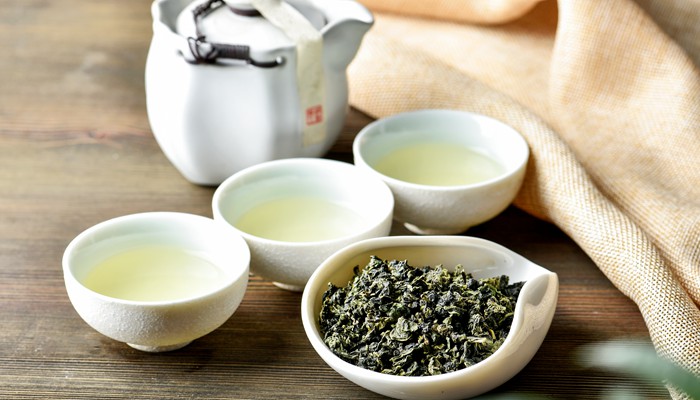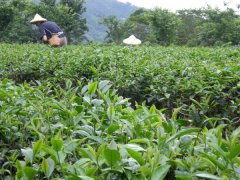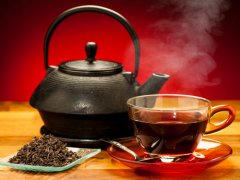What kind of tea does Tieguanyin belong to? How many degrees of water does Tieguanyin use to make it taste good?
Our Tieguanyin tea is hand-made twice a year in spring and winter by fourth-generation oolong tea artisans in Mingjian Village, Nantou County, central Taiwan. Our Tieguanyin is made from Wuyi and Qingxin Oolong tea varieties, made in traditional style, roasted by electric brazier control, medium oxidation and medium roasting. This carefully managed process creates a smooth palate that exudes roasted buckwheat aromas and subtle dried apricot notes. Tieguanyin, also known as Tieguanyin, is said to have been discovered by a farmer named Wei who lived in Anxi County, Fujian Province. Wei was a poor but pious man who traveled long distances each week to clean up the village's dilapidated temples. Merciful Quan Yin Bodhisattva visited Wei Zhe in his dream and told him to check the gifts behind the temple to commemorate his dedication. The next day Wei woke up, walked to the temple and found a tea tree growing behind it. He cultivated this tea tree and found that the tea soup of the tea tree was very fragrant. He shared seeds with his friends, and to this day, the Tieguanyin variety is said to be descended from this legend.

The palate is round with aromas of roasted chestnuts and dried apricots. Traditional water temperature:195°F. Leaf water ratio: 25% tea leaves in a porcelain bowl. Soaking time: 1 minute for the first injection, 20 seconds for the second injection, 50 seconds for the third injection, and approximately 2 minutes for subsequent injections. For more oxidized, aged or baked teas, we recommend rinsing for 5-10 seconds before the first brew. Discard water after rinsing.
Important Notice :
前街咖啡 FrontStreet Coffee has moved to new addredd:
FrontStreet Coffee Address: 315,Donghua East Road,GuangZhou
Tel:020 38364473
- Prev

What's the difference between honey-scented black tea and red jade black tea? Is the price of Taiwan tea No. 18 red jade expensive?
The elegant jasmine and the natural tea-flavored green tea are suitable for a cup in the morning, take a sip of tea, awaken the taste buds and wake up the start of the day. Red jade black tea "RubyBlackTea" Ru in English
- Next

What is the right water temperature for Tieguanyin tea? Guide to the correct brewing water temperature of all kinds of tea
The suitable brewing temperature for tea can be 140 degrees (super green tea) or 212 degrees (fully boiled) (black tea and herbal tea). There are many levels between the two. It is important to make tea at the right temperature so that the taste of the tea is the best. Use too hot water, may burn the fragile tea, guide
Related
- Unexpected! Ruixing Telunsu lattes use a smoothie machine to foam milk?!
- % Arabia's first store in Henan opens into the village?! Netizen: Thought it was P's
- Does an authentic standard mocha coffee recipe use chocolate sauce or powder? Mocha Latte/Dirty Coffee/Salty Mocha Coffee Recipe Share!
- What is the difference between Vietnam egg coffee and Norway egg coffee? Hand-brewed single product coffee filter paper filter cloth filter flat solution!
- What is the difference between sun-cured and honey-treated coffee? What are the differences in the flavor characteristics of sun-honey coffee?
- How to make Italian latte! How much milk does a standard latte use/what should the ratio of coffee to milk be?
- How to make butter American/butter latte/butter Dirty coffee? Is hand-brewed coffee good with butter?
- Is Dirty the cold version of Australian White? What is the difference between dirty coffee/decent coffee and Australian white espresso?
- Relationship between brewing time and coffee extraction parameters How to make the brewing time fall to 2 minutes?
- Got entangled?! Lucky opens a new store, Mixue Ice City, and pursues it as a neighbor!

